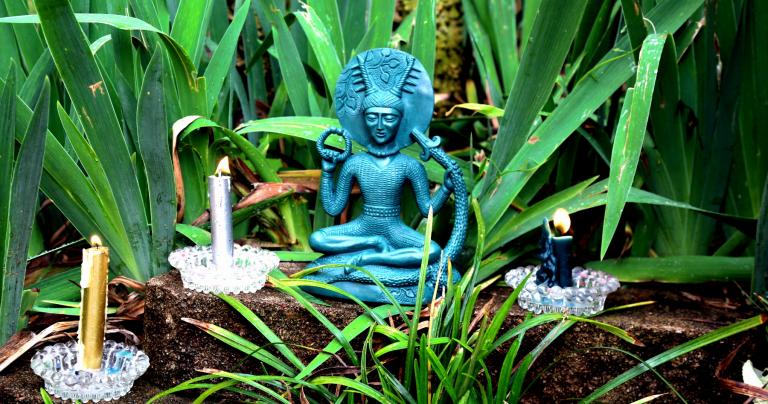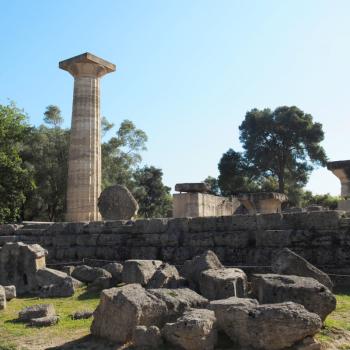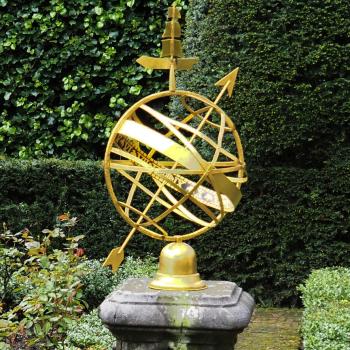In the last post on Preparing for Pagan Priesthood I mentioned the need for discernment. If you Google “discernment” you’re likely to get a list of Christian websites. Some of them deal with the topic generically, while others deal with figuring out whether or not a person is experiencing a call to ministry or priesthood. Those are common uses of the term, but discernment is not a Christian-only thing.
The dictionary defines discernment as “the ability to judge well.” It’s the ability to draw fine distinctions between two or more things that are similar but not identical. It’s separating facts from errors and from opinions, distilling the facts into truth, and putting truth to work in service of the good.
Discernment is at least as important to Pagans as it is to Christians. We hear a call from a God, we have an ecstatic experience deep in the woods, or we run face-first into a powerful spirit. What does it mean? Perhaps more importantly, what should we do? Discernment is necessary.
Discernment requires context
Whether you believe there are many Gods, one God, or no Gods makes a big difference. A Pagan, a Baptist, and an atheist can have the same identical experience, but they will all interpret their experience in different ways because they have radically different foundational assumptions about the world and the way it works. This is why I talk so much about the need to examine our foundational assumptions.
I’m a polytheist. My context is one of many Gods and spirits, each of whom is an individual with their own sovereignty and agency, their own goals and dreams, their own likes and dislikes. As an animist, my context is one where all things are not things but persons who we can relate to as persons. My context is one of hospitality – I take care of my guests and I strive to be an honorable guest in someone else’s home. My context is one of reciprocity – if I receive, I expect to give in return.
This is all part of my model of how the world works – all my experiences will be interpreted in this context. You will do the same, whether you’re consciously aware of your context or not. Best to be aware of it up front.
Discernment requires knowledge
At one level, discernment is a matching operation. We look at our experience, then we look at something we know (a story, a theory, another experience, etc.) and say “is it like this?” Then we pick up another comparison and say “is it like this?” We do this over and over and over again, comparing what we saw and heard and felt to anything in our breadth of knowledge and seeing if it matches.
If our breadth of knowledge isn’t particularly broad, we may not be able to make a good match. This is what happens when young children see unfamiliar animals and end up giving them funny names, like the kid who called a camel a “sand horse.” It’s cute, and it kinda makes sense, but a camel isn’t a horse.
When we’re trying to hear the Gods, “cute” and “kinda makes sense” aren’t good enough.
Read ancient lore and contemporary scholarship. Talk to priests and devotees. Practice on your own and participate in group worship. Learn as much as you can about as much as you can. Then when you’re trying to figure out “is this like that?” you’ve got a lot more “thats” to try to match with it.
Discernment requires observation
Context and knowledge are things you acquire before you have an experience. Observation is something you do while it’s happening.
If this is a powerful ecstatic experience, you won’t be able to carefully write everything down. You’ll forget half of it fifteen minutes after it’s over (but you’ll never forget the other half, even if you try). When I’ve been in a situation where I expected an important ecstatic experience, I arranged for someone to act as an observer, who could write everything down as it happened.
If you can’t do that, or if this is a milder but persistent experience (which is typical of calls to priesthood), take notes as soon as you can. Be as objective as possible: what did you see? What did you hear? What did you feel? Don’t attempt to interpret it yet. And for the sake of all the Gods, don’t attempt to rationalize it away. The process of discernment may lead you to decide that a non-theistic interpretation is most likely – if that’s the truth that reveals itself during the process, so be it. But the time for that determination will come later.
The better job you can do of being present while the experience is happening the better chance you have of discerning the truth in the experience.
Discernment requires analysis
Now the work begins.
Start with the matching process. Go over your observations. What do they match up with? What are they similar to? Perhaps more importantly, what are they different from?
My first ecstatic experience was of a wild, powerful, male, antlered, spirit/being. My matching process led me to guess that He was Cernunnos.
Could it have been Pan? Possibly, but there were no horns or hooves – nothing goat-like. The context of the ritual was Celtic, not Greek. And while the experience was wild, it didn’t have that frenzy often associated with Pan. Further, I had been wearing the Cernunnos pendant for a while. I was pretty confident that’s who it was. Further experiences would confirm that discernment.
Details are important. Look at each one separately. Where do they match something you’ve seen in lore, in the experiences of others, or in your own experiences? What did they mean then? Might that fit here? Or perhaps it doesn’t mean anything – it’s just “set decoration.”
Divination can be helpful here. But as with any reading, be careful of expecting the cards or runes or whatever your favorite system is to give you a quick and easy answer. Divination can turn on the headlights so you can see where you’re going, but it can’t tell you if you’ll like it once you get there.
Don’t be afraid to consult others, particularly priests and diviners within your tradition, or at least within your general area. A mystical pantheist is going to have a very different context from a devotional polytheist – they will point you toward a different interpretation. That doesn’t mean they’re wrong, but it does mean they’re different. The more consistent you can be in your approach, the more consistent answers you can discern.
Discernment requires synthesis
As a curious little kid, I figured out that you could learn a lot by taking stuff apart to see how it works. The challenge, of course, was putting it back together.
Deconstructing our experiences and our callings help us analyze them in small pieces. We may not be able to understand them in total, but understanding them in part is a good start. But eventually we have to put the whole thing together.
It’s possible that you won’t have enough facts or enough good matches to discern the full meaning from your experience. So the discernment process continues. All I could synthesize from that experience was that I was on the right path and I needed to keep working. But I liked the direction I was going. It would take more experiences and analysis before I was finally to discern with confidence that Cernunnos wanted me to be His priest.
Discernment requires a decision
The process of discernment helps us determine what our experiences mean: who is speaking to us and what are they telling us. But discernment only takes us part of the way – to complete the journey, we have to decide how to respond.
Discernment led me to understand that Cernunnos was calling me to be His priest. I said yes, and began a devotional relationship that will last at least through the end of this life.
A few years later, discernment led me to understand that the Morrigan was offering her priesthood to me, but only under conditions I could not accept. I said no, and the relationship took another direction.
I am eternally curious. Whatever the subject, I want to know. Knowing is good. But simply hoarding knowledge doesn’t help anyone – we have to do something with that knowledge.
Understand your foundational assumptions. Increase your breadth of knowledge. Pay careful attention to your religious experiences. That they happen is unquestionably true – record your observations. Analyze them – what does this match? What does it not match? Where does it fit? Put the big picture together.
Perhaps now you’ll know exactly what it means and you’re ready to make a decision. Perhaps you need another round of distillation. Or perhaps you don’t have enough information yet and you need to keep looking – and keep working while you look.
Discernment keeps us from jumping to conclusions that are simple, pleasant, and wrong. Discernment keeps us from putting our experiences under glass and ignoring calls and messages that are important even if they’re also difficult and scary. Discernment helps us distill the truth from our Pagan experiences.
For another perspective on discernment, see this post by Scarlet Magdalene: Discernment, The Spirits, And You: How To Separate Invocation From Ego.




















